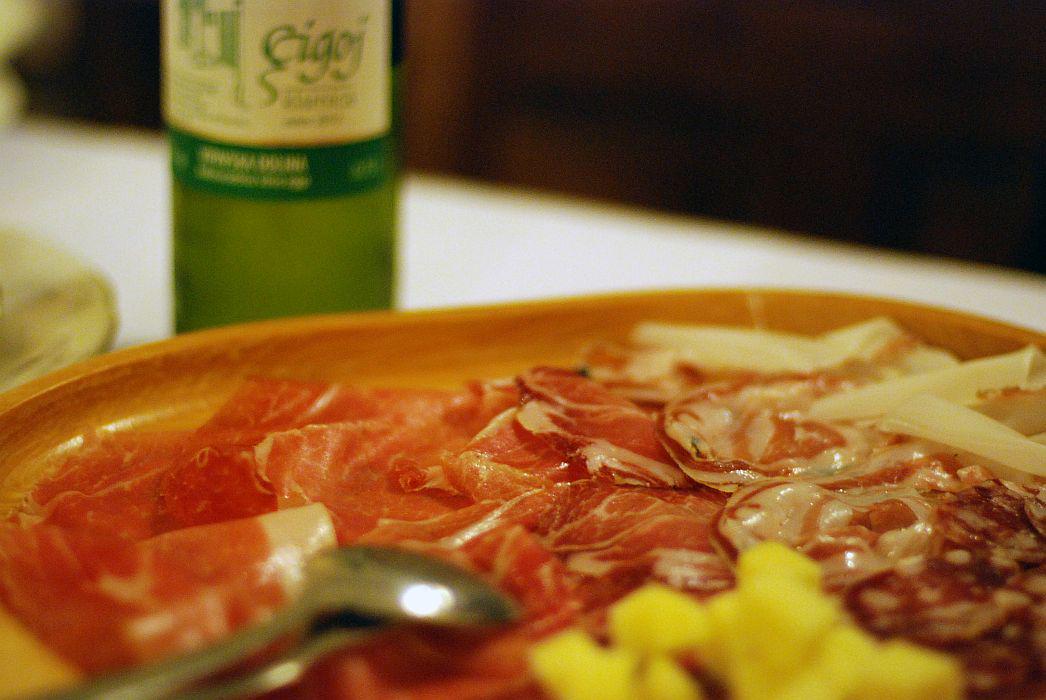
Drivers exploring the wind-swept Karst plateau or other areas of Slovenia’s coastal hinterland occasionally notice small wooden signs by the side of the road. Decorated with a twig of ivy or laurel, the signs invariably point to a nearby farm. By following the direction of the arrows, curious travelers are in for a feast – a chance to experience some of the finest locally-grown food in the area without breaking the bank. It’s all part of a tradition known as Osmica (“Number Eight” in Slovenian) that dates back to the Hapsburg era.
In the old days, local wine growers were permitted to serve wine eight days a year without paying taxes. It was an ideal way of getting rid of excess wine, and the tradition became deeply rooted throughout southwestern Slovenia. Although its origins date back to the 16th century, the practice was formalized during the rule of Maria Theresa in the 18th century.
Despite the frequent changes in governments and borders in the ara, Osmicas – farms that take part in this venerable tradition -- survive to this day. Even the strict limitations remain in place. The Slovenian government allows Osmicas to operate for no more than two ten-day periods each year. One of the two periods tends to be in November, when new wine ripens and becomes ready to drink.
One thing that has changed is what visitors can expect to find at each participating farm. No longer just venues for selling wines, the farms have branched out to provide a wide range of local specialties. By law, all of the foods have to be home-grown. In many cases, visitors can look forward to the local karst pršut (prosciutto) – ham that has been air-dried in the famous bora winds. Various local cheeses are also commonly available. Many farms, however, now go a step further and provide freshly cooked meals from local ingredients – time-tested dishes such as fresh pasta, sausages, omelets with herbs, eggplants in olive oil and, often, home-baked bread. Accordion music is often provided to ensure that the atmosphere is as local as possible.
Modern-day Osmicas, a new twist on an old tradition, provide fresh insight into the traditional lifestyle in on one of the most unique parts on Slovenia.

































































